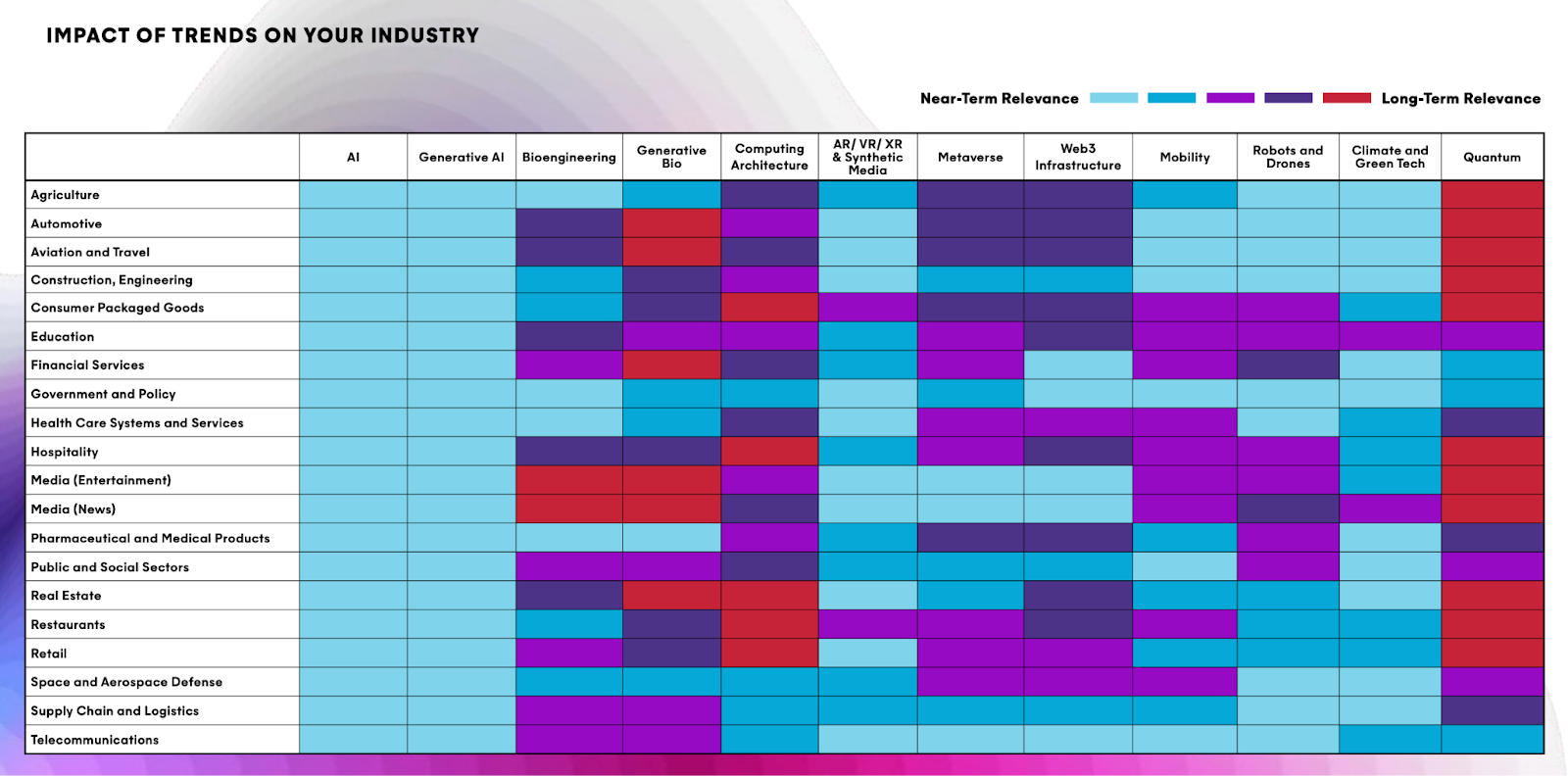
Better known as “SXSW,” South by Southwest is one of the largest technology and innovation festivals in the world. Last month, Macarta delegates attended the event, and two presentations on the future use of technology stood out:
- 10 Breakthrough Technologies to Pay Attention To In 2024
- Elizabeth Bramson-Boudreau
- CEO & Publisher of MIT Technology Review
- Emerging Tech Trend Report
- Amy Webb
- CEO of the Future Today Institute
- Professor at NYU Stern School of Business
Let’s delve into each one.
The technology that placed first in Bramson-Boudreau’s list was AI — no surprise here — but other technologies are increasing in significance. Take a look at the full rundown of MIT’s estimation of the most innovative tech of 2024:
- Artificial Intelligence
Quoting the MIT Technology Review: “We now live in the age of AI.” Expect more AI companies, jobs, and industries to emerge over the next decade — and for the public and private sectors to shift vast investments into this field.
- Efficient Solar Cells
Companies and governments are installing solar panels all across the world, but the addition of another layer of crystals onto the panels could increase their capacity to convert sunlight into electricity with even greater productivity.
- Apple Vision Pro
“Welcome to the era of spatial computing,” Apple proclaims on its Vision Pro page, and they could be right. We might be headed for a world where we slide on our goggles and do all our work simply by speaking or moving our eyes or flicking our fingers.
- Weight Loss Drugs
Two weight loss drugs that may become household names are countering the alarming rise in obesity worldwide: “Mounjaro” and “Wegovy.” Some studies suggest they could also protect against strokes and heart disease.
- Geothermal Systems
Another clean energy breakthrough to watch: Geothermal energy, which MIT Technology Review calls “clean, always available, and virtually limitless.” New drilling techniques are making this energy even more accessible.
- Chiplets
Moore’s Law is the observation that the number of transistors in a microchip doubles — while its cost gets cut in half — about every two years. That observation sums up many advancements in computing, and chiplets could be one way to continue that progress.
- Gene-Editing Treatment
Regulatory approval for the use of gene editing to treat sickle cell disease recently passed in the US and the UK, potentially leading to more medical applications of gene editing.
- Exascale Computers
“Exaflop” sounds like the extraordinary flop of a new movie release. But it’s actually a 1 followed by 18 zeros, AKA a “quintillion” — the amount of calculations that the world’s supercomputers can perform. Translation: Computers are getting exponentially smarter.
- Heat Pumps
Inexplicably, “heat pumps” refer to the technology that both heats and cools buildings. But, hey, they reduce emissions and sales of heat pumps are on the rise, surpassing gas furnaces and doing its part to decarbonize the industry.
- Twitter Killers
Elon Musk bought Twitter in 2022, firing much of the staff and reforming the company into “X,” frightening advertisers and alienating users. What used to be the central digital venue to air your thoughts on will likely face competitors in the years ahead.
Emerging Tech Trend Report
Futurist Amy Webb launched the “2024 Emerging Tech Trend Report” at SXSW 2024, a nearly 1,000-page doorstopper offering the Future Institute’s encyclopedic summary of tech trends — touching on AI, Web3, the metaverse, computing, space, energy and climate, among others.
Browse through the full report here, and get a bird’s-eye view of the near- and long-term impact of certain trends across industries in the table below. Perhaps most noteworthy about this analysis is that it indicates that AR/VR/XR and generative AI are already relevant in many fields.

Conclusion
The rate of technological change is increasing, and if companies and governments alike want to stay relevant, they should pay attention to the latest trends in tech. At Mindgruve, we follow trends closely, believing that the companies that survive aren’t the strongest or the most intelligent — they’re the most adaptable to change.
Want to ask a question or learn more? Get in touch with us today.